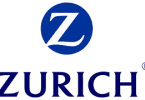Insurance for plant hire typically refers to insurance coverage for businesses that rent out construction equipment, such as excavators, bulldozers, and cranes. It may include coverage for damage to the equipment. At the same time, it is being used by a rental customer, as well as liability coverage in the event that the equipment causes injury or damage to a third party.
Some policies may also provide coverage for loss of income if the equipment is stolen or destroyed. It is vital for plant hire companies to have this type of insurance to protect themselves from financial losses.
You may also like
Types Of insurance for plant hire
There are several types of insurance that are commonly used for plant hire, including:
- Physical Damage Coverage: This type of insurance covers damage to the equipment caused by things like fire, theft, and natural disasters.
- Liability Coverage: This type of insurance covers any damage or injuries caused by the equipment while the renter is using it.
- Non-Owned Equipment Coverage: This type of insurance covers equipment that is borrowed or rented by the insured business, but not owned by them.
- Inland Marine Coverage: This type of insurance covers equipment during transportation, such as when it is being moved from one job site to another.
- Workers Compensation: This type of insurance covers any injuries that an employee of hire company may sustain while operating the equipment
- Hired Auto Liability: This type of insurance covers liability for any damage or injuries caused by the equipment while a third-party driver is operating it.
It is important to note that these types of insurance may vary depending on the country and the insurance provider and that it is essential to check with your insurance provider for the specific coverage they offer.
Cost Of insurance for plant hire
The cost of insurance for plant hire will vary depending on several factors such as the type and value of the equipment being hired, the location of the equipment, and the duration of the hire. Other factors such as the experience of the operator and the specific insurance requirements of the job site may also play a role in determining the cost of insurance for plant hire. It is best to contact an insurance provider for a specific quote for your needs.
Benefits Of insurance for plant hire
Insurance for plant hire can provide several benefits, including:
- Financial protection: Insurance can cover the cost of repairs or replacement of the plant equipment in case of damage or loss.
- Liability coverage: Insurance can cover the cost of legal expenses and settlements in case someone is injured or property is damaged while the equipment is in use.
- Business continuity: Insurance can help to minimize disruptions to your business operations in the event of equipment damage or loss.
- Compliance: Some contracts and projects may require that you have insurance in order to participate.
- Peace of mind: Having insurance can give you peace of mind knowing that you are protected against potential financial losses.
How to apply for insurance for plant hire
To apply for insurance for plant hire, you will typically need to follow these steps:
- Research insurance providers: Look for insurance companies that specialize in providing coverage for plant hire businesses. Compare coverage options, premiums and other important details.
- Gather information about your business: You will need to provide information about your business, including details about the equipment you own, your revenue, and any prior insurance claims.
- Complete an application: Submit an application to the insurance company. This may be done online, over the phone, or in person.
- Provide any additional documentation: The insurance company may request additional documentation such as proof of ownership or inspection reports for the equipment.
- Review and sign the policy: Once the application is approved, review the policy and sign it to activate the coverage.
- Keep the policy up to date: Review your insurance policy regularly and notify your insurance company of any changes to your business or equipment.
It is always advisable to consult an insurance broker for a better understanding and guidance in getting the right insurance policy for your business.






Leave a Comment